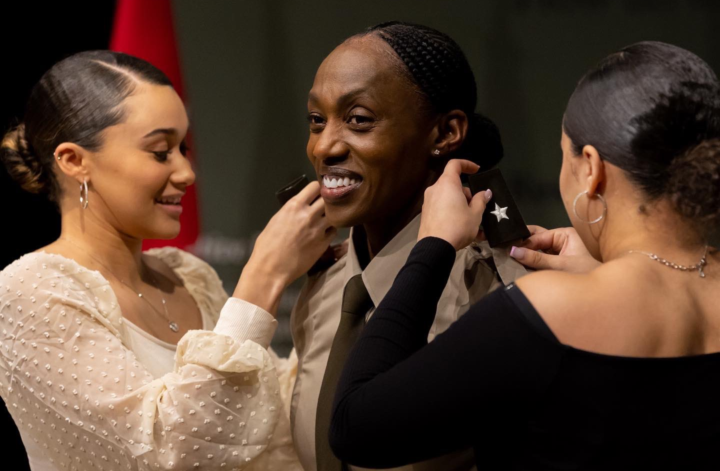In 2018, Michael Soli, along with his co-founders, embarked on a transformative journey with a clear mission in mind: to unlock the untapped potential of African talent. This led to the establishment of Polymorph Labs Ghana, a dynamic software development company driven by a vision to create innovative solutions that address the unique challenges faced by local communities. Their focus areas encompassed crucial sectors such as healthcare and agriculture, where technology could make a significant impact. This vision was deeply rooted in a strong belief in the capabilities of the indigenous talent pool and the pivotal role of education in fostering creativity and progress. As they delved deeper into their work, Michael Soli and his team encountered numerous real-world scenarios that underscored the pressing need for tailored solutions. For instance, in the healthcare sector, they observed how limited access to medical resources in remote areas hindered the delivery of essential services to those in need.

This fueled their determination to develop user-friendly applications that could bridge this gap and improve healthcare outcomes for underserved populations. Similarly, in agriculture, they witnessed firsthand the challenges faced by small-scale farmers in optimizing their yields and accessing markets efficiently. This inspired them to design platforms that offered valuable insights and streamlined processes to empower farmers and enhance agricultural productivity. Polymorph Labs Ghana set out to redefine the landscape of technology in Africa. They understood that sustainable progress could only be achieved by harnessing local talent and knowledge to drive innovation from within. By investing in education and empowering individuals to leverage their skills, they aimed to cultivate a culture of creativity and problem-solving that would propel communities forward. In essence, their journey was not just about developing software solutions; it was about catalyzing a transformation that would uplift lives and pave the way for a brighter future.
Education and training hold a central position in the core mission of Polymorph Labs, a commitment that is exemplified through the lectures delivered by Michael Soli at the esteemed University of Ghana. In these lectures, Soli imparts valuable knowledge spanning various domains such as computer science, mobile app development, web app development, and more. By sharing his expertise and insights, Soli not only educates but also inspires the students to harness their skills and creativity in developing innovative solutions to address pertinent societal challenges. This pedagogical approach is instrumental in shaping the mindset of the future generation of software engineers, laying a strong foundation for their success in the dynamic tech industry. Moreover, Soli’s dedication to nurturing young talents not only benefits the students but also plays a pivotal role in the overall prosperity and growth of Polymorph Labs. By empowering students with practical skills and theoretical knowledge, Soli equips them to tackle real-world problems with confidence and ingenuity.

For instance, students who have been mentored by Soli have gone on to launch successful startups, create groundbreaking apps, and contribute meaningfully to the technological landscape. This ripple effect of Soli’s teachings extends far beyond the confines of the classroom, leaving a lasting impact on the industry as a whole. In essence, the symbiotic relationship between education, mentorship, and practical application is at the core of Polymorph Labs’ philosophy. Through the guidance and expertise of individuals like Michael Soli, the company not only fulfills its mission of advancing knowledge and innovation but also cultivates a community of skilled professionals who are poised to drive progress and change in the ever-evolving tech sector. It is this holistic approach to education and training that sets Polymorph Labs apart and ensures its continued success in shaping the future of technology.
The company’s first significant project, “Ocean Isle,”was developed in response to a competition organized by GMES and Africa. This mobile app/web dashboard allows users to report marine incidents by geolocating and documenting them, which helps authorities take appropriate actions. The app’s success earned Polymorph Labs fourth place in the competition, highlighting their innovative approach to problem-solving. The development of “Ocean Isle”marked a pivotal moment for Polymorph Labs, showcasing their ability to leverage technology for environmental and safety initiatives. By participating in the competition organized by GMES and Africa, the company demonstrated its commitment to addressing pressing issues in the marine sector. Through the app/web dashboard, users can easily pinpoint and report marine incidents, such as oil spills or illegal fishing activities, contributing to the preservation of marine ecosystems.

Moreover, Polymorph Labs’ innovative solution not only facilitates incident reporting but also streamlines the process for authorities to respond effectively. For instance, when a user documents a marine incident through the app, the relevant data is instantly transmitted to the concerned authorities, enabling prompt action to mitigate the impact. This seamless communication between users and authorities underscores the practicality and efficiency of “Ocean Isle”in enhancing maritime safety and environmental protection efforts. The recognition received by Polymorph Labs for securing fourth place in the competition speaks volumes about their dedication to developing impactful solutions. The company’s unique approach to problem-solving, characterized by a blend of technology and environmental stewardship, sets them apart in the competitive landscape. Moving forward, Polymorph Labs aims to build on the success of “Ocean Isle”and continue their mission of leveraging innovation for the betterment of society and the environment.
Building on this success, Polymorph Labs created an app specifically for West African fishermen. This app provides real-time information on ocean conditions, helping fishermen make safer decisions about when and where to fish. Initially, the team considered sending text messages but quickly realized this method would be inefficient. Instead, they implemented a USSD service, allowing fishermen to access information by dialing a code from any phone. The app also features a visual map for smartphone users, showing ocean conditions with color-coded hazard levels. Polymorph Labs’ innovative approach didn’t stop there. They developed an Interactive Voice Response (IVR) system to ensure that even illiterate fishermen could access crucial information in their preferred language. This system supports multiple languages, including local dialects, making it accessible to a broader audience.

Despite financial challenges, Polymorph Labs remains committed to keeping their services free for users. The initial funding from GMES helped get the project off the ground, but Michael Soli has also invested personal funds to sustain their work. This dedication underscores the company’s primary goal: to create solutions that have a real impact on their communities. As Polymorph Labs continues to grow, Michael Soli and his team remain confident in the future. They are open to investment opportunities to expand their reach and enhance their solutions. By believing in African talent and leveraging the power of education and innovation, Polymorph Labs is setting a new standard for what local tech companies can achieve, proving that Africa can and should develop its own solutions to its unique challenges.




